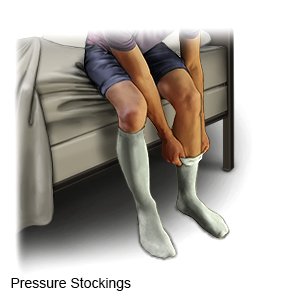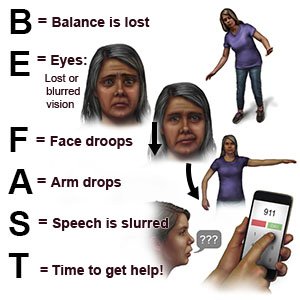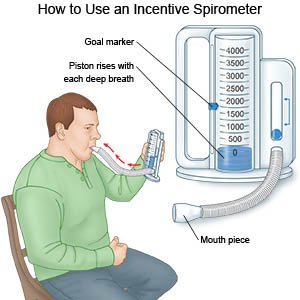Open Repair of Abdominal Aortic Aneurysm
Medically reviewed by Drugs.com. Last updated on Aug 4, 2025.
AMBULATORY CARE:
What you need to know about open repair of an abdominal aortic aneurysm (AAA):
Open repair of an AAA is surgery to remove an aneurysm (bulge) in your aorta. The aorta is a large blood vessel that goes from your heart down into your abdomen. The AAA will be replaced with a graft (tube). After surgery, blood will flow through the graft instead of the aneurysm. The surgery will help prevent your aneurysm from bursting or leaking. A burst or leaking aneurysm can be life-threatening. Open repair of an AAA may be planned if the aneurysm is growing but not leaking. The repair will be done immediately if the aneurysm bursts.
How to prepare for a planned open repair of an AAA:
- Your surgeon will tell you how to prepare. Your surgeon may tell you not to eat anything after midnight on the day of surgery. You may be able to drink clear liquids up to 2 hours before your surgery. You may need to spend 1 week or more in the hospital. Arrange to have someone drive you home after you are discharged. This person will need to stay with you for at least 1 week to make sure you are okay.
- Your surgeon may recommend cardiac rehabilitation (rehab). Cardiac rehab is a program run by a team of specialists who will help you create a management plan. The plan may include exercise, relaxation, stress management, and heart-healthy nutrition. Your team can help you quit using nicotine products or stimulating drugs, if needed. Nicotine may cause blood vessel damage and delay healing or increase your risk for another aneurysm. Your team will recommend that you quit using nicotine at least 4 weeks before surgery. Stimulating drugs such as cocaine increase your blood pressure (BP). A high BP increases the risk for a burst aneurysm.
- You may need blood tests or a CT scan to help your surgeon plan your surgery. You may be given contrast liquid to help your aneurysm show up better in the CT pictures. You may be given antibiotics to help prevent an infection. Tell your surgeon about any allergies you have, including to medicines, contrast liquid, or anesthesia. Tell healthcare providers if you or anyone in your family has had a problem with anesthesia.
- Tell your surgeon about all your current medicines, including any herbs or supplements. Your surgeon will tell you if you need to stop any medicine for surgery, and when to stop. Your surgeon will also tell you which medicines to take or not take on the day of surgery.
What will happen during open repair of an AAA:
- You will be given general anesthesia to keep you asleep and free from pain during surgery. Your surgeon will make an incision in your abdomen. The incision may go up to your chest. Your surgeon will clamp your abdominal aorta to stop the blood flow through your aneurysm. Your surgeon will remove the aneurysm and replace it with a graft. The graft will be attached to your aorta with stitches.
- Your surgeon will remove the clamps to let blood flow. Your incision may be closed with stitches, staples, medical glue, or adhesive strips. Your incision may instead be left open for a few days. This will help your healthcare providers check for damage to your kidneys or bowel. You will need a second surgery to close your incision if it was left open. A bandage will be placed over your incision site to help keep the area clean and dry to prevent infection.
What to expect after open repair of an AAA:
- You will be taken to a room or the intensive care unit (ICU). Healthcare providers will watch you closely for any problems. You may have pain, swelling, or bruising in the surgery area. These should get better within a few days.
- You may need medicine to prevent or treat pain, nausea, and vomiting. Medicines may be needed to lower your BP or cholesterol level. Blood thinners may be given to prevent blood clots. You may bleed or bruise more easily while you are taking blood thinners.
- The pulses in your legs and feet will be checked often. A weak pulse may mean blood is not flowing well to your legs. You may be helped to walk around after surgery. Your providers may give you exercises to do in bed. You may also need to wear pressure stockings or inflatable boots. Exercise and pressure stockings or boots help improve blood flow and prevent clots.

- You may have a Foley catheter in your bladder to help remove urine. You may have an endotracheal (ET) tube. An ET tube is attached to a ventilator. A ventilator is a machine that breathes for you when you cannot breathe well on your own.
Risks of open repair of an AAA:
You may bleed more than expected. You may develop an infection in the surgery area or the graft. Blood flow to your legs or spine may be decreased from blood vessel damage or a blood clot. The decrease may cause weakness or loss of movement in your legs, or damage your kidneys or bowel. You may have a problem getting or keeping an erection if you are male. Any of these problems may be permanent. You may develop another AAA even after you have this surgery. You may have a heart attack or stroke during or after surgery. These can be life-threatening.
Call your local emergency number (911 in the US) or have someone call if:
- You have any of the following signs of a heart attack:
- Squeezing, pressure, or pain in your chest
- You may also have any of the following:
- Discomfort or pain in your back, neck, jaw, stomach, or arm
- Shortness of breath
- Nausea or vomiting
- Lightheadedness or a sudden cold sweat
- You have any of the following signs of a stroke:
- Numbness or drooping on one side of your face
- Weakness in an arm or leg
- Confusion or difficulty speaking
- Dizziness, a severe headache, or vision loss

- You have sudden sharp pain in your abdomen, groin, back, legs, or buttocks.
- You cough up blood.
- You have trouble breathing.
- You feel dizzy, faint, or lose consciousness.
- You cannot be woken.
- You have trouble walking or moving your legs.
Seek care immediately if:
- You have a fever or chills.
- Your surgery area is red, swollen, or has pus coming out.
- You have stiffness, swelling, or a lump in your abdomen.
- Your leg feels warm, tender, and painful. It may look swollen and red.
- Blood soaks through your bandage.
- Your surgery area comes apart.
- Your buttocks or legs feel numb or cold, and your skin is pale or darker than usual.
- You see blood in your bowel movements.
- You cannot control your urine or bowel movements.
Call your doctor or surgeon if:
- You feel depressed or anxious.
- You have nausea or are vomiting.
- Your skin is itchy, swollen, or you have a rash.
- You have questions or concerns about your condition or care.
Related medications
Medicines:
You may need any of the following:
- Nausea medicine may be needed to prevent or treat nausea or vomiting.
- Blood thinners help prevent blood clots. Clots can cause strokes, heart attacks, and death. Many types of blood thinners are available. Your healthcare provider will give you specific instructions for the type you are given. The following are general safety guidelines to follow while you are taking a blood thinner:
- Watch for bleeding and bruising. Watch for bleeding from your gums or nose. Watch for blood in your urine and bowel movements. Use a soft washcloth on your skin, and a soft toothbrush to brush your teeth. This can keep your skin and gums from bleeding. If you shave, use an electric shaver. Do not play contact sports.
- Tell your dentist and other healthcare providers that you take a blood thinner. Wear a bracelet or necklace that says you take this medicine.
- Do not start or stop any other medicines or supplements unless your healthcare provider tells you to. Many medicines and supplements cannot be used with blood thinners.
- Take your blood thinner exactly as prescribed by your healthcare provider. Do not skip a dose or take less than prescribed. Tell your provider right away if you forget to take your blood thinner, or if you take too much.
- Antiplatelets , such as aspirin, help prevent blood clots. Take your antiplatelet medicine exactly as directed. These medicines make it more likely for you to bleed or bruise. If you are told to take aspirin, do not take acetaminophen or ibuprofen instead.
- NSAIDs , such as ibuprofen, help decrease swelling, pain, and fever. This medicine is available with or without a doctor's order. NSAIDs can cause stomach bleeding or kidney problems in certain people. If you take blood thinner medicine, always ask your healthcare provider if NSAIDs are safe for you. Always read the medicine label and follow directions.
- Prescription pain medicine may be given. Ask your healthcare provider how to take this medicine safely. Some prescription pain medicines contain acetaminophen. Do not take other medicines that contain acetaminophen without talking to your healthcare provider. Too much acetaminophen may cause liver damage. Prescription pain medicine may cause constipation. Ask your healthcare provider how to prevent or treat constipation.
- Blood pressure (BP) medicine may be needed to lower or control your BP. This can help prevent a heart attack, stroke, or another aneurysm from forming.
- Cholesterol medicine may be needed to lower or control your cholesterol level. This can help prevent a buildup of cholesterol in your aorta.
- Take your medicine as directed. Contact your healthcare provider if you think your medicine is not helping or if you have side effects. Tell your provider if you are allergic to any medicine. Keep a list of the medicines, vitamins, and herbs you take. Include the amounts, and when and why you take them. Bring the list or the pill bottles to follow-up visits. Carry your medicine list with you in case of an emergency.
Rest often:
Slowly increase your activity each day. Wait several days before you repeat an activity that causes pain.
Take deep breaths and cough 10 times each hour:
This will help open your airway and decrease your risk for a lung infection. Take a deep breath and hold it for as long as you can. Then let the air out and cough strongly. You may be given an incentive spirometer to help you take deep breaths. Put the plastic piece in your mouth and take a slow, deep breath. Then let the air out and cough. Repeat these steps 10 times every hour.
 |
Care for the surgery area:
- Keep the area clean and dry. Your healthcare provider will tell you when it is okay to bathe. Carefully wash around the area with soap and water. Let the soap and water run over the area. Do not scrub the area. Pat the area dry with a clean towel. Check for signs of infection, such as redness, swelling, or pus. Then put on a new, clean bandage. Change your bandage as often as directed and if it gets wet or dirty.
- Wear an abdominal binder as directed. The binder will decrease pain when you move or cough.
- Do not lift objects heavier than 10 pounds for at least 6 weeks. This can put too much stress on your surgery area and cause the area to open.
Continue cardiac rehabilitation (rehab) as directed:
Your rehab team will help you create a plan to recover safely after surgery. The plan includes exercise, relaxation, stress management, and heart-healthy nutrition. Your team will also check to make sure any medicines you were given after surgery are working. The plan may also include instructions for when you can drive, return to work, and do other normal daily activities.
Do not use tobacco products or stimulating drugs:
Do not start using these again if you quit before your surgery. Nicotine in tobacco products can cause blood vessel damage, delay healing, and increase your risk for another aneurysm. E-cigarettes or smokeless tobacco still contain nicotine. Talk to your healthcare provider or rehab team before you use these in place of cigarettes. Avoid secondhand smoke. Stimulating drugs such as cocaine increase your BP. A high BP increases the risk for a burst aneurysm.
Know the risks if you choose to drink alcohol:
Alcohol can increase your BP. Ask your provider if it is okay for you to drink any alcohol. Your provider can help you set limits for the number of drinks you have within 24 hours and within 1 week. A drink of alcohol is 12 ounces of beer, 5 ounces of wine, or 1½ ounces of liquor.
Follow up with your doctor or surgeon as directed:
You may need to return for scans to check your aorta and graft. Your providers will tell you when and how often to return. Write down your questions so you remember to ask them during your visits.
© Copyright Merative 2025 Information is for End User's use only and may not be sold, redistributed or otherwise used for commercial purposes.
The above information is an educational aid only. It is not intended as medical advice for individual conditions or treatments. Talk to your doctor, nurse or pharmacist before following any medical regimen to see if it is safe and effective for you.
Further information
Always consult your healthcare provider to ensure the information displayed on this page applies to your personal circumstances.
